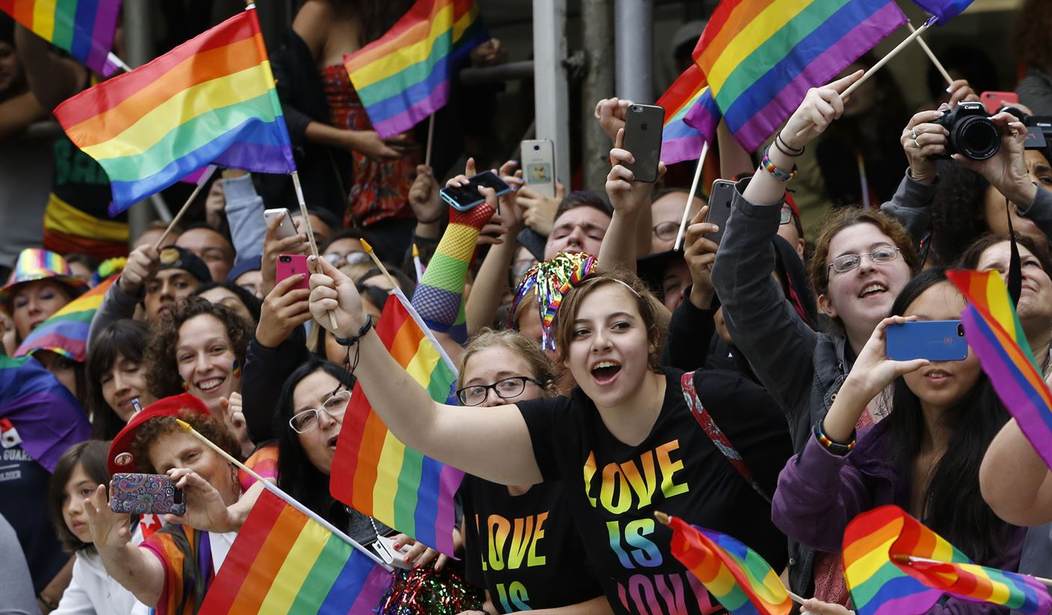For many years now, LGBT activists have been attacking conversion therapy — a common term for various treatments and counseling for distressed LGBT-identifying people to change their orientation to heterosexual. You can't look up the practice on a search engine without getting a long list of sites that declare unequivocally that it is "pseudoscience." Heck, according to the Wikipedia page for conversion therapy, there is "scientific consensus" that it is "ineffective at changing a person's sexual orientation or gender identity and that it frequently causes significant long-term psychological harm."
Gee, where have we heard about "scientific consensus" before?
Anyway, the movement against conversion therapy has resulted in more than 20 states banning the practice, in part because conversion therapy allegedly increases the suicide risk of LGBT Americans. This claim is based on a variety of studies that were unscientific and manipulated to get the desired results.
Again, that's a practice we're all too familiar with.
According to Paul Sullins, a research professor at Catholic University and senior researcher for the Ruth Institute, “The evidence shows that SOCE [sexual orientation change efforts] is fairly effective at preventing suicide attempts,” not increasing them.
"These majorly flawed studies have boosted efforts to ban therapists from helping distressed people across the United States and the world," writes Joy Pullman at The Federalist. "According to Sullins, some 20 states and the District of Columbia ban therapists from helping people struggling to resolve homosexual desires or gender dysphoria. Six states partially ban such therapy. That means in those states, therapists may only nudge children toward, rather than help prevent, transgender mutilation."
Every study published since 2009 on therapy for people struggling with sexual orientation distress used the same major scientific flaw Sullins identified in a 2020 paper, Christopher Rosik, a psychologist at Fresno Pacific University, found in 2022 with a research review. All failed to control for suicidal thoughts and actions LGBT people expressed before they went to “conversion therapy.”
The studies claim “conversion therapy” caused the LGBT study participants to have more suicidal thoughts and attempts, but not one separated the suicidal thoughts and attempts that occurred before starting therapy. It’s not only logically impossible but scientifically invalid to say something that came after a first thing caused the first thing. But that’s what every single one of these studies did.
Failing to control for preexisting suicidal distress among LGBT people before they went to therapy led to the false but widely publicized claim that “conversion therapy causes suicide.”
After re-evaluating the data from the 2020 study and implementing proper controls, Sullins discovered that a significant portion of suicidal thoughts and attempts among LGBT individuals occurred before seeking therapy for sexual orientation concerns. In other words, it wasn't the therapy that caused suicidal thoughts.
But here's what's really going to trigger the LGBT activists: After controlling for pre-therapy suicidal tendencies, Sullins found that so-called "conversion therapy" actually led to an 80% reduction in suicide attempts and intentions.
So, once again, the authors of the original study cared more about their agenda than the facts and manipulated their own study. The anti-conversion therapy movement is based on a lie.
“I don’t want to say that their study was fraudulent, but it purposely ignored scientific standards of evidence to point to causation with regard to SOCE [sexual orientation change efforts] harm,” Sullins said.
Sadly, last week, the Supreme Court refused to hear a challenge to the state laws banning conversion therapy. "If therapy does reduce suicidal thoughts and attempts, these talk therapy bans and the Supreme Court’s refusal to end them enable higher levels of distress and self-harm for LGBT Americans," writes Pullman. "The reaction to Sullins’ 2022 published findings, which continues, included respondents insisting on retraction because the findings could endanger queer legal privileges."










Join the conversation as a VIP Member